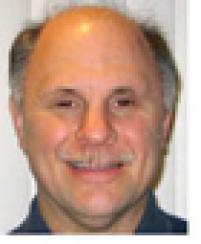Never underestimate the power of taxes. Just look at what is happening on both sides of the Atlantic Ocean.
Last week, London-based Brevan Howard announced that founder Alan Howard will now be based full-time in Geneva, working for the Geneva branch of Brevan Howard Investment Products Ltd. It added that Howard continues in his role as the principal risk taker in the Brevan Howard Master Fund and his capital allocation and risk limits, as well as his wider responsibilities in relation to BHMF, remain unchanged.
There are three traders in Geneva already and another five are expected to move there this year. Total capacity is said to be 38, including support staff. Meanwhile, more than 200 remain in London. Other BH offices include Hong Kong, Tel Aviv, Jersey, Dublin, New York.
Why did Howard move? The announcement did not say and the firm won’t comment. The Financial Times reported that Howard is relocating for “lifestyle reasons,” noting that he and his wife, who is French, already owns a house in Switzerland.
However, you can’t avoid the fact that just a few months ago, Britain raised its top tax rate for the wealthiest citizens to 50 percent from 40 percent. Also, Britain is threatening to increase its regulation of the financial industry. Perhaps Howard, who earned about $350 million last year, did not want to see his tax bill go up. The Sunday Times of London estimates his net worth at closer to $1.5 billion.
Of course, moving to Geneva might also could make it easier for him to recruit the kinds of professionals who make attractive sums but not the level of money Howard earns.
According to reports, there is no capital gains tax for individuals in Switzerland and alternative investment managers can apply for a special tax status. Not that Brevan Howard has trouble recruiting. It is currently one of the world’s premier hedge fund firms. Its $30 billion or so of assets under management ranked it tied for fourth and fifth in Institutional Investor’s annual top-100 list. And the firm proved it can make money during good and lousy times.
Last year, Brevan Howard racked up an 18.65 percent return in its gargantuan BH Master Fund. But, unlike many others who performed as well or better in 2009, BH was earning its performance fee from day one since in 2008 it was one among a minority of funds to made money when its largest fund surged 21 percent. The firm probably generated more than $1 billion in management and performance fees in 2009.
Brevan Howard is not the only British hedge fund firm to move to Switzerland. BlueCrest Capital Management, headed by Michael Platt, opened an office in Geneva earlier this year. According to one report, Platt hopes to have 70 people over there by the end of the year.
BlueCrest ranked sixteenth with nearly $17 billion in assets at year-end. Platt, who earned about $210 million in 2008, just missed qualifying for AR-Alpha’s top-25 hedge fund earners list for 2009. Platt reportedly wrote to investors: “We are strongly of the view that the new group structure, including the the establishment of the Geneva office in particular, will enhance the group’s ability to recruit and retain the best talent in our industry, so helping us to continue to deliver strong investment performance.”
U.S. lawmakers also seem to understand the tantalizing power of lower taxes. It seems earlier this week, Connecticut governor M. Jodi Rell sent a letter to Timothy Selby, president of the New York Hedge Fund Roundtable, “inviting him and other hedge fund managers to relocate,” according to the Associated Press.
The governor is pouncing on the news that New York State plans to seek additional taxes from hedge fund managers.
According to the report, Rell told Selby that state economic development professionals will help find offices, homes and schools.
Let’s see how many hedge fund managers take her up on her offer.








